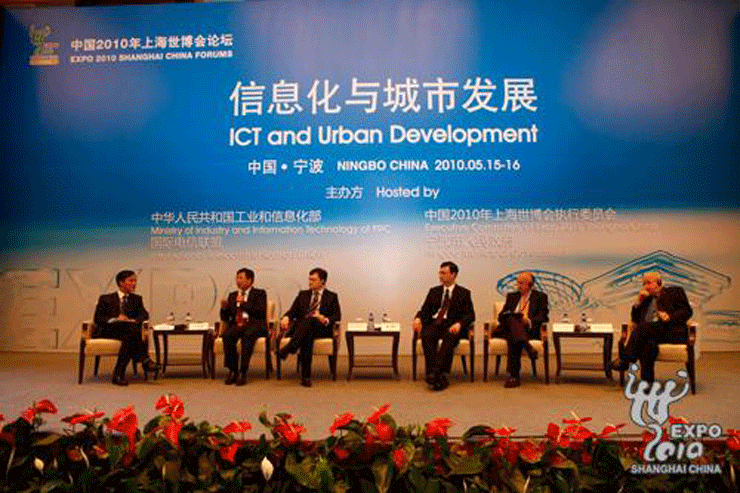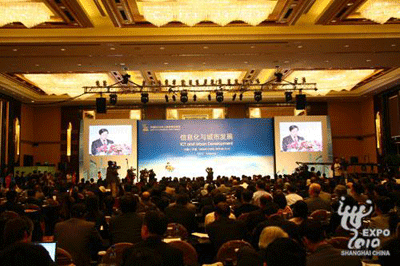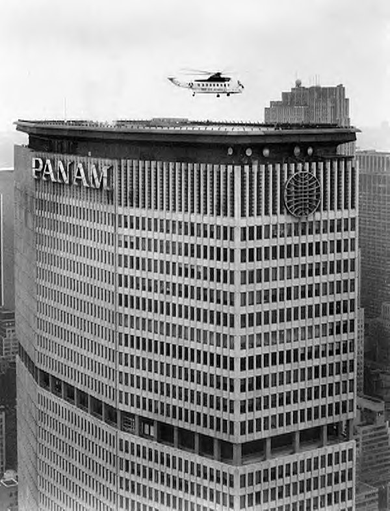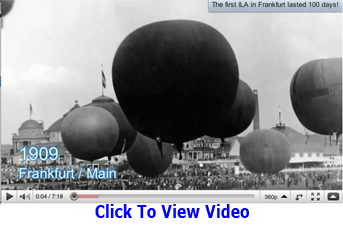Ningbo
Hosts ICT

The first official theme
forum of the 2010 Shanghai Expo, The Information and Communication Technology
(ICT) and Urban Development Forum was held on May 16-18 in Ningbo City,
Zheiiang Province.
 The forum gathered nearly 650 government
officials, experts, and representatives and participants from Expo 2010
so that they might share their visions on the application of information
and communications technology in various fields.
The forum gathered nearly 650 government
officials, experts, and representatives and participants from Expo 2010
so that they might share their visions on the application of information
and communications technology in various fields.
Besides a plenary session entitled “Internet
and the Information Industry Dialogue,” seven parallel sessions
were involved in the forum, one of which was “Modern Logistics
and the Construction of Shipping Centers.”
The ICT development has enabled logistics
to evolve from the management task of an enterprise into an industry.
And competition in today’s logistic industry is driven by information
management and technological advances rather than expanding on the facilities.
Under the topic “The Change of Modern
Logistics brought by ICT” at this session, Mr. Mao Guanglie, (left)
Mayor of Ningbo, introduced the case of Ningbo in applying ICT in logistics:
“Located southeast of Yangtze River
Delta Region, Ningbo is an important port city of China and also a primary
part of Shanghai’s International Shipping Center strategy.
“Ningbo has put much effort on the
development of modern international logistics in recent years, using
ICT as one of the key drivers to upgrade and reshape traditional logistics.
“Over 70 percent of Ningbo’s
3,600 logistics companies have applied ICT in operation and management,
and many of them have achieved remarkable growth in scale and efficiency
in this process.
“Ningbo launched research on Fourth
party logistics (4PL) in 2006, and opened China’s first 4PL trading
platform-4PL Market in March 2009.
“Ningbo also has established the
first local criteria in China for ICT in logistics, which we hope will
become a standard for the industry nationwide.”
 Also
at this session, Mr. Cai Yang, Chief Engineer of China Eastern Airlines,
shared his view on ICT application in air cargo business, using China
Eastern Airlines as an example. Also
at this session, Mr. Cai Yang, Chief Engineer of China Eastern Airlines,
shared his view on ICT application in air cargo business, using China
Eastern Airlines as an example.
“As the world factory of high-tech
products, 80 percent of IT products in Yangtze River Delta are delivered
to the world through air transportation within 72 hours. Besides these
high-tech products, seafood, flowers, books, medicines and software
have also become target customers of air cargo business.
“However, a precondition for high-efficient
logistics is information flow, the ability to cover air and ground,
domestic and international air cargo transportation and whole-process
tracking.”
“Compared with air cargo hubs in
the world, the gap of domestic hubs is not air cargo turnover or flight
number, but information systems.
“China Cargo Airlines, subsidiary
of China Eastern Airline, has completed its information system upgrade
in accordance with IATA standard, becoming the first domestic cargo
carrier that supports electronic freight.”
China Cargo Airlines currently owns 19
all-cargo freighters and has a belly-hold of over 300 passenger aircraft.
With the merging of Shanghai Airlines, the new China Eastern Airlines,
holds a one-third share position in China’s air cargo market.
Mr. Cai Yang also introduced the three
steps that China Cargo Airlines is going to take in the following years:
“The first step is to reshape the
business structure within two years, putting more efforts on special
cargo business, like extra-large cargo, dangerous goods, etc.
“The second step is to integrate
air and ground transportation, and the third step is to provide customized
cargo service.
David
|





